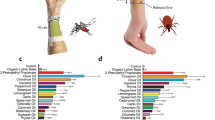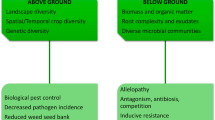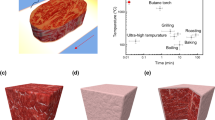Abstract
IN September 1963 a number of growers reported severe damage to the flowers and foliage of all-year-round chrysanthemums by a new caterpillar which, when more than half-grown, was apparently resistant to DDT. The larvæ were later determined as Spodoptera littoralis (Boisd.) (Prodenia litura F.) (Lepidoptera: Noctuidae), an important pest of cotton and many other crops in African and Mediterranean countries. Experiments showed that dichlorvos at 24 c.c. of 50 per cent emulsifiable concentrate per gallon per 600 sq. ft. of bed could kill larvæ up to the third instar. The older larvae were susceptible to 0.04 per cent dieldrin as a stomach poison. The pest was afterwards eliminated from the nurseries on which it had appeared by the combined use of these two materials.
This is a preview of subscription content, access via your institution
Access options
Subscribe to this journal
Receive 51 print issues and online access
$199.00 per year
only $3.90 per issue
Buy this article
- Purchase on Springer Link
- Instant access to full article PDF
Prices may be subject to local taxes which are calculated during checkout
Similar content being viewed by others
Author information
Authors and Affiliations
Rights and permissions
About this article
Cite this article
HUSSEY, N., GOSTICK, K. Effects of Low-temperature Storage on the Eggs of Spodoptera littoralis (Boisd.). Nature 203, 323–324 (1964). https://doi.org/10.1038/203323b0
Issue Date:
DOI: https://doi.org/10.1038/203323b0
Comments
By submitting a comment you agree to abide by our Terms and Community Guidelines. If you find something abusive or that does not comply with our terms or guidelines please flag it as inappropriate.



